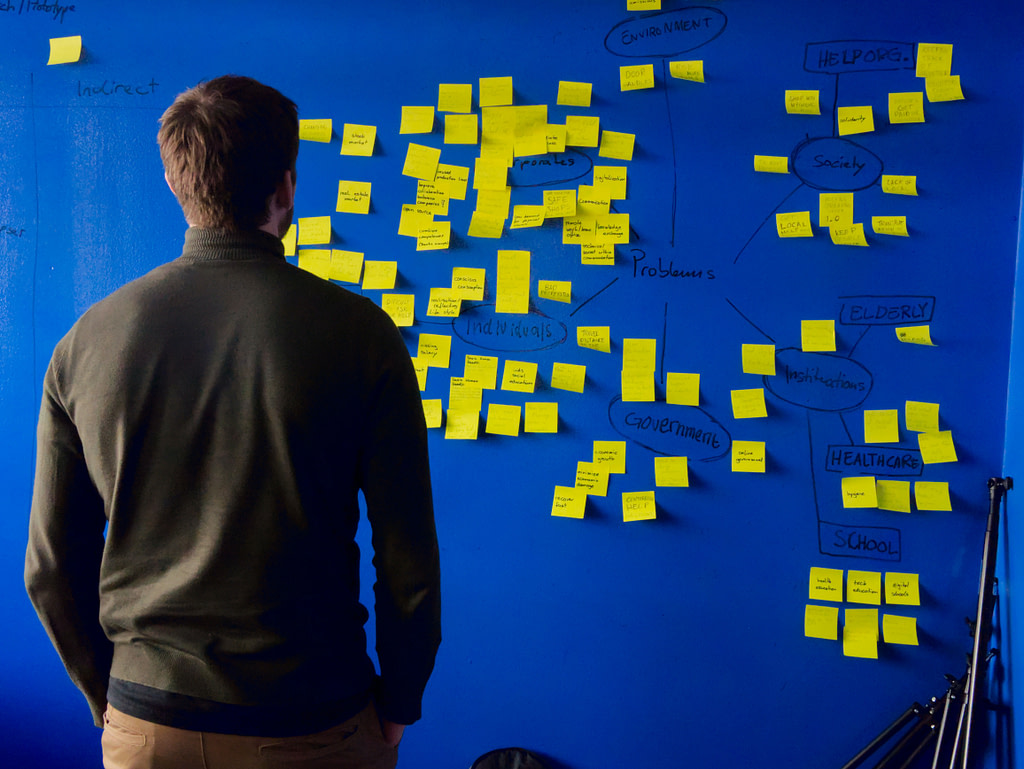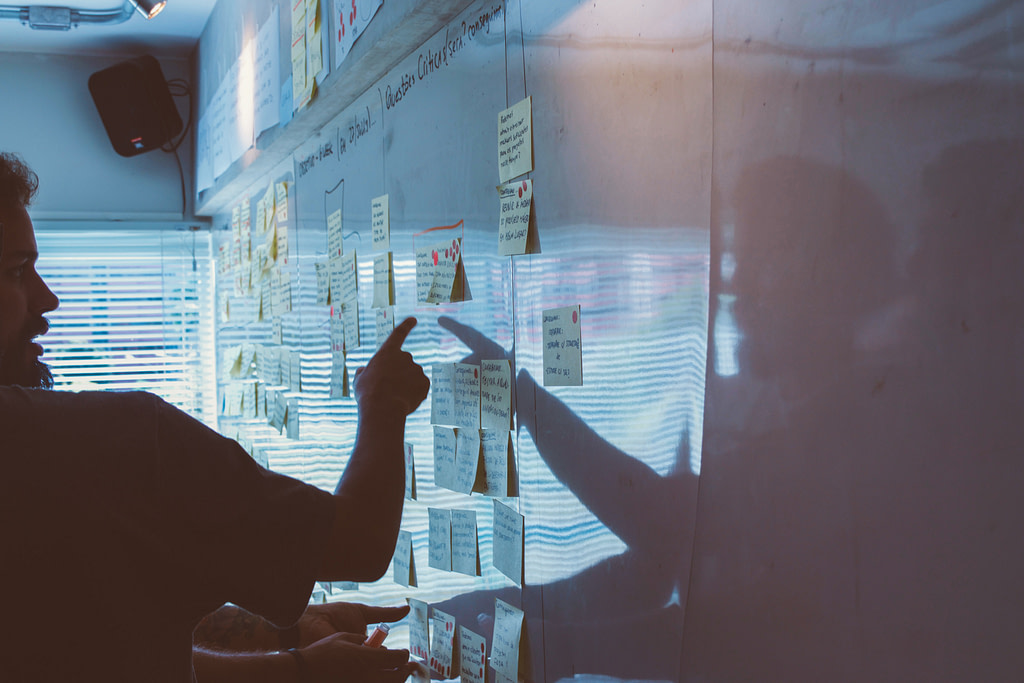When you’re looking for a company to help you implement generative AI in your organization, you want to know three things: how long it will take, how much it will cost, and what exact results you can expect. And, most likely, your RFP will not be enough to answer any of these questions accurately.
In this article, I don’t want to explain why most estimates are useless or teach you how to write an RFP that can improve their accuracy. Instead, let me tell you a bit about Generative AI Exploratory Workshops – the session that helped dozens of our clients choose the right use case for Gen AI, plan timeline and budget, and succeed with their implementations.
What are Generative AI Exploratory Workshops?
Generative AI Exploratory Workshop is a session for those of you who want to recognize the areas of application of generative AI, choose the ones to proceed with, and plan the implementation.
After the workshops, you will have a list of potential generative AI adoption scenarios prioritized by their feasibility, business impact, and ease of implementation, clarity on how to proceed with the project, and a comprehensive report summarizing the goals, recommended tech stack, and team composition, time- and budget estimates, metrics, and expected results of the implementation. The report can also serve as a pitch deck for your stakeholders and investors or as a detailed RFP that will help you get more reliable project estimates.

Generative AI Workshops step by step
While the general format of the workshop is fixed, its detailed agenda is always adjusted to the specifics of your project and where you are in the process of Gen AI adoption.
To achieve the best efficiency during the session, we recommend splitting it into two 2-3 hours sessions in two days. (However, it is possible to squeeze it into one day if necessary). On the first “exploratory” day, we focus on WHAT we want to do and achieve. On the second “scoping” day, we dig into details and focus on HOW we’re gonna do it.
Day One: Exploration
The goal of the first session is to help you validate your ideas and figure out the best AI use case for your business. We work together to determine what’s doable and what’s not, assess your data and other resources, spot shortcomings, etc. All that is to help you clarify the right direction, set priorities, or let go of ideas that don’t bode well.
Step 1: Discussing business goals and current challenges
Every workshop session starts with a discussion about your strategy, the business goals (both short and long-term), and the challenges that you are currently facing. While this part may not sound super exciting (after all, you are already aware of your strategy), it is an essential step that gives us an understanding of what you want to achieve — which is a necessary background to provide reliable advice in the next steps — and sets the foundation for further discussions.
After all, you don’t want to implement generative AI just for the sake of doing it, right? If your strategy says you need to focus on acquiring new customers, we will try to find out how generative AI can help you acquire new customers. If your goal is to reduce costs, we should think of operational excellence and look for ways to reduce costs. The main question we’re trying to answer this day is not what we can do with Gen AI but how Gen AI can help us solve problems and achieve the goals that come directly from the strategy.
Step 2: Shortlisting the potential use cases
Next, we brainstorm. Among the brainstorming exercises we run with the clients are the “How might we…,” where we analyze how we can solve the problems and achieve the business goals we have just discussed, what approaches we might take to achieve them, solo and group brainstorming sessions.
For those of you who don’t have a clear vision for your project, this step also serves an inspirational role. We may discuss some cases from your industry and ideas shared by both your team members and Neoteric. The goal is to develop a list of possible generative AI use cases aligned with the discussed business goals that we will move forward with. If the initial list is long, we will vote to shorten it to a few “strongest,” and most promising ideas.
Step 3: Choosing THE use case
After the brainstorming, we move on to the prioritization phase. During this step, we subject the prepared shortlist to a deeper analysis, looking at every use case from various angles and assessing them through several conditions: reach, impact, feasibility, effort, and confidence.
- Reach: How many people will use the solution within a given timeframe?
- Impact: How much, on a given scale, will the solution impact individual users?
- Feasibility: How confident, on a given scale, are we about the feasibility of the proposed solution? How much data do we have to begin with?
- Effort: What time investment will this initiative require from product, design, and development?
- Confidence: How confident are we about the above metrics?
These criteria help us to reasonably compare use cases from the shortlist and allow you to make a more informed decision regarding which ones you should move forward with.
After choosing one or two use cases with the highest business potential, the ones that you are confident to proceed with, we are ready to finish the first day of workshops. The next step will be to focus on how to approach the chosen use case(s).
Read also: How to Identify the Right Use Case for Generative AI Adoption? Experts Advise

Day Two: Scoping
In this part of the session, we delve into the discussed ideas, perform an in-depth analysis of the chosen use case(s), define success criteria and metrics, talk about the potential risks, and figure out the best approach to mitigate them. The goal is to plan the implementation and minimize the risk of its failure.
Step 4: Build solid foundations
In order to bring your ideas to life, we need to check what we start with. That’s why the second day of the workshops starts with analyzing the user journey (and, obviously, the AI’s role in this journey) and the discussion about the available data. At this stage, we need to know if there is data we can use (e.g., for fine-tuning the model or building RAG), what kind of data it is, and how it is acquired. All that information is crucial for planning the architecture of the designed solution, recommending the right technologies to be used, planning the project timeline, and mitigating the risks that may occur during the implementation phase.
Read also: Open-Source vs. OpenAI. 8 Best Open-Source Alternatives to GPT
Step 5: Hope for the best…
On the second day of the workshop, we will also talk about success metrics and agree on how you can measure the impact of the designed Gen AI implementation on your business. Do not underestimate that step! Unlike the “vanilla” ML, generative AI models are difficult to measure. Sometimes, they will require focusing on quality metrics (e.g., user feedback) rather than on quantity metrics.
In this part of the workshop, we will talk about what should be measured in the planned implementation, how it can be measured, and how these metrics correspond with your business goals.
Step 6: … prepare for the worst
Last but not least, we will discuss different risks that we may encounter over the course of the implementation. We will talk about the accuracy of the results we can get, data privacy, compliance, and other challenges of generative AI adoption that you should be aware of. We will also think of different ways to mitigate these risks (e.g., using RAG to empower the model with domain-specific and up-to-date knowledge and increase the accuracy and auditability of its responses). Forewarned is forearmed.

Next steps
After the workshop, our team gathers once again to design the architecture of the solution, list technical recommendations, suggest team composition and project timeline, and prepare the estimates. The outcome of this work is summarized in a custom report.
This report strives to grasp your ideas and plans, analyze the current state, and provide recommendations that can serve as a baseline for your product development. It contains a high-level scope, recommended tech stack, and team composition. It also contains time & price estimates to help you align the project timeline with your business goals.
Is it always necessary to go through the Generative AI Workshops?
While the Generative AI Workshops are designed to maximize the chances of success with Gen AI, it is not a mandatory step. If your ideas are already specified and you have a clear vision of what you want to achieve, you don’t really need inspiration or a push to move forward — then the exploration phase is not for you. In such a case, you will benefit more from a Scoping Session, where we can delve into your ideas to figure out the best approach for addressing your business needs, think through tools, technologies, and architecture, and polish the concept.
Answering the question: No, it is not always necessary to go through the workshops. But those who participated say it was worth it.
“What impressed us most was Neoteric’s ability to explain complex AI concepts in a manner that was clear and accessible to both our business and technical teams. Their collaborative approach and commitment to understanding our unique requirements set them apart from other agencies we worked with in the past.”
“If not for the workshops, we would still be thinking and discussing what we can do with generative AI, without a clear idea of where to start and how to approach the project. The session pushed us to action.”
“After the workshop, we changed the initial idea for Gen AI implementation. We have managed to identify a use case that has higher impact on the organization and is easier to implement from the technical standpoint.”
“I didn’t realize how many things I hadn’t thought about when planning the project. The workshop saved me weeks if not months of work and rework.”
While attending the workshop reqiuires a few hours of your commitment, starting the project without the proper preparation can cost you months of work and unexpected complications. It may turn out that the available data is not enough, that RAG would be better than few-shot learning (or the other way around), and that the whole project costs more than was estimated.
Starting Your Gen AI Project Smart
When you’re looking for a company to help you implement generative AI in your organization, you want to know three things: how long it will take, how much it will cost, and what exact results you can expect. And, most likely, you want the answers to reflect the actual cost and timeline and set realistic expectations, not just to be randomly assumed numbers.
The bad news is that without analyzing your project carefully, assessing the available data, considering the tech stack and the environment, and thinking about the team composition and deadlines you may have — it is simply not possible to come up with realistic estimates and get the first two answers. Don’t get me wrong: Estimates are still estimates. Slight changes in the timeframes and costs are inevitable, one way or another. AI projects are rarely fixed-priced, as there are too many changing circumstances that can impact their cost and timeline (that’s why we treat them as R&D and start with the experiment). But the better we understand the project, the more accurately we can plan the project, and the workshops play a huge role here.
Your turn!
If you’d like to plan your generative AI implementation with our team, fill out the form below, and we will contact you to schedule the workshops.
